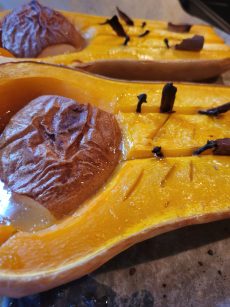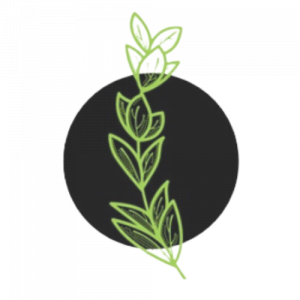As the vibrant autumn leaves fall, we are reminded of the profound influence the seasons have on our environment and bodies.
The cooling air and shorter days signal a shift in nature, and our own rhythms are equally affected. While modern conveniences shield us from the harshest effects of seasonal transitions, nature’s cycles still shape our health and well-being in subtle but powerful ways.
In Traditional Chinese Medicine (TCM), each season carries unique qualities that influence our physical and emotional health. Autumn, marked by its dryness, bridges the warmth of summer and the chill of winter. This dryness particularly impacts the lungs, leaving them vulnerable.
According to classical TCM texts, lung health in autumn plays a crucial role in strengthening the body’s defenses for winter. By aligning ourselves with the qualities of fall, we can build resilience and prepare for the colder months.
In this article, we’ll explore autumn through the TCM lens and share practical tips to nurture your body and mind during this transitional time.

1. Protect Your Neck
In TCM, wind and cold are considered external pathogens that can easily invade vulnerable areas, especially the neck. Rich in nerves, blood flow, and sensory pathways, the neck is a vital region to protect from exposure. Even a slight chill can disrupt the body’s balance—I’ve noticed a dip in my energy myself when skipping a scarf on colder days.
Another key area to keep warm is the midriff, particularly for women, as exposure to cold can impact the reproductive system and overall vitality. Small adjustments, like layering clothing, can make a significant difference in maintaining health during the cooler months.
We’ll explore the deeper effects of cold in next season’s blog.
2. Eat with the Season
Autumn’s harvest provides nourishing foods that help the body prepare for winter. Hearty squashes and pumpkins offer deep sustenance, while apples’ gentle sourness aids in consolidating energy. Soups and stews made with seasonal ingredients are warming and counter the dryness of fall.
TCM considers white foods to be connected to lung health. Pears, radishes, white mushrooms, and yams are excellent choices, as are warming spices like ginger and garlic. Conversely avoiding poorly
Bonus Recipe: Spicy Roasted Pear and Butternut Squash Soup
Spicy Roasted Pear and Butternut Squash Soup
This TCM-inspired soup combines warming spices with the sweetness of pear to nourish digestion and support lung health.
Ingredients:
- 1 Butternut Squash
- 1 Asian Pear (or any pear)
- 1 Can of Coconut Milk (or vegetable broth)
- Fresh Ginger (1-2 inches, sliced)
- Cinnamon, Cloves, Lemongrass
- Butter (optional)
Instructions:
1. Preheat the Oven: Set to 400°F (200°C).
2. Prepare the Squash: Halve and scoop out seeds. Add a pat of butter if desired, and place cinnamon and cloves on top


3. Add the Pear: Halve and core, then place face down with the squash.
4. Simmer the Coconut Milk: Heat with ginger and lemongrass for 30 minutes. Adjust consistency with water as needed.
5. Roast: Bake squash and pear until tender (about 45 minutes to an hour). Let cool.
6. Blend: Scoop out the flesh, discard the skin, and blend with the coconut milk. Remove lemongrass before blending.
7. Season and Serve: Add salt to taste.
This soup balances the heartiness of squash with the sweetness of pear, making it a perfect companion for the cooler months.
3. Reflect and Let Go
Autumn invites reflection and release, much like trees shedding their leaves. Take moments throughout your day to check in with yourself—listen to your body and observe your mind.
What beliefs, habits, or emotions no longer serve you? By letting go of what holds you back, you create space for renewal and growth.
While sadness and sorrow are natural responses, holding onto them for too long can hinder well-being. This season is an opportunity to embrace healing and transformation, preparing you for the months ahead.
4. Harmonize with the Season
Autumn carries a distinct spirit of preparation and transition. As animals gather food and ready themselves for winter, we too can maintain momentum while laying the groundwork for a quieter, more introspective time.
In TCM, autumn’s Metal element represents organization and letting go. Use this time to shed clutter, old habits, or unnecessary stress, while strengthening your body’s defenses for winter.
Staying active is crucial, but the cooler weather makes proper warm-ups and cool-downs even more important. Gentle stretches, breathwork, or a short walk can help you ease into and out of exercise, reducing stiffness and injury.
And, of course, what better time for an acupuncture tune-up? Think of it as your seasonal health alignment—balancing energy, boosting immunity, and addressing any lingering imbalances before winter. A little self-care now can go a long way, and while I might be biased, your body will thank you!
By embracing these practices, you can harmonize with autumn’s energy, fostering balance and purpose as you transition into winter.
At Adaptive Healing Medicine
We recognize the profound impact seasonal transitions have on your health and well-being. By aligning with nature’s rhythms and incorporating Traditional Chinese Medicine principles, we help you prepare your body and mind for the cooler months ahead.
Our holistic approach considers every aspect of your health, from nutrition to lifestyle adjustments, ensuring you’re equipped to thrive through seasonal changes. Schedule a consultation with one of our practitioners today and discover how we can support your journey to balance and resilience.


